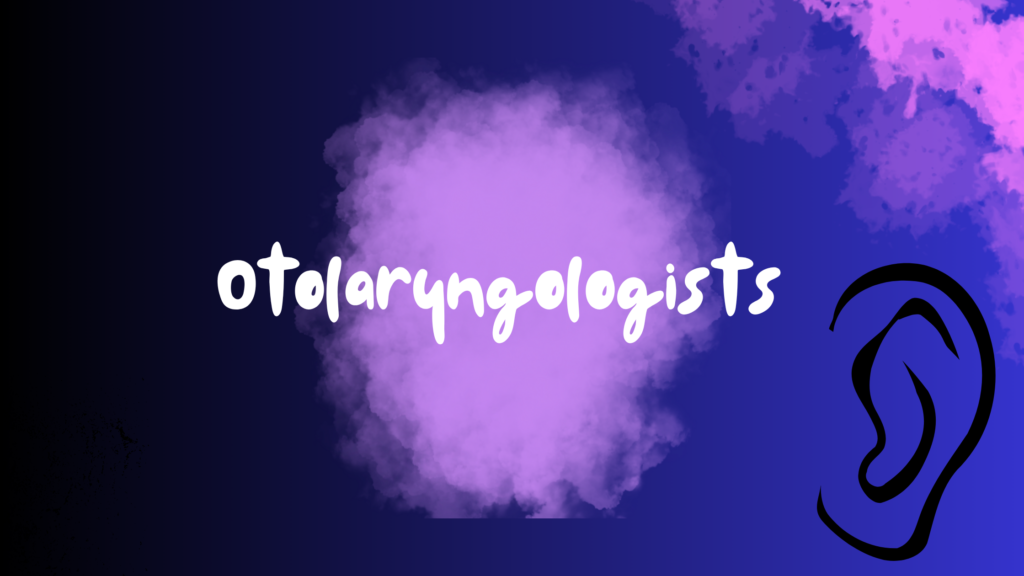👂👃🗣️ About Otolaryngologists (ENT Specialists)
An otolaryngologist, also known as an ENT specialist (Ear, Nose, and Throat doctor), is a medical doctor who specializes in diagnosing and treating conditions of the ear, nose, throat, and related structures of the head and neck.
🩺 What Does an Otolaryngologist Do?
ENT doctors manage both medical and surgical conditions, including:
- Ear problems: Hearing loss, infections, balance disorders, tinnitus (ringing in ears)
- Nose issues: Sinusitis, nasal blockages, allergies, deviated septum
- Throat conditions: Sore throat, tonsillitis, voice or swallowing problems
- Head & neck tumors: Including thyroid, salivary glands, and cancers
- Sleep disorders: Such as snoring and obstructive sleep apnea
- Facial trauma or cosmetic surgery (some are trained in facial plastic surgery)
👨⚕️👩⚕️ Subspecialties of ENT
| Subspecialty | Focus Area |
|---|---|
| Otology/Neurotology | Ear, hearing, balance (e.g., cochlear implants) |
| Rhinology | Nose and sinus diseases, nasal polyps, allergies |
| Laryngology | Voice, swallowing, and throat disorders |
| Pediatric ENT | ENT issues in children |
| Head and Neck Surgery | Tumors, thyroid, facial trauma |
| Sleep Surgery | Sleep apnea and snoring |
🧪 Common Tests and Procedures
- Audiometry: Hearing test
- Endoscopy: To look inside the nose or throat
- CT/MRI scans: For head, neck, and sinus issues
- Tympanometry: Tests middle ear function
- Surgical procedures:
- Tonsillectomy
- Sinus surgery
- Ear tube placement
- Septoplasty (correcting a deviated nasal septum)
⚠️ When to See an Otolaryngologist
- Chronic ear infections or hearing problems
- Persistent sinus or nasal issues
- Frequent sore throats or tonsil infections
- Hoarseness lasting more than 2 weeks
- Snoring or suspected sleep apnea
- Growths or lumps in the neck or throat
- Dizziness or balance problems
